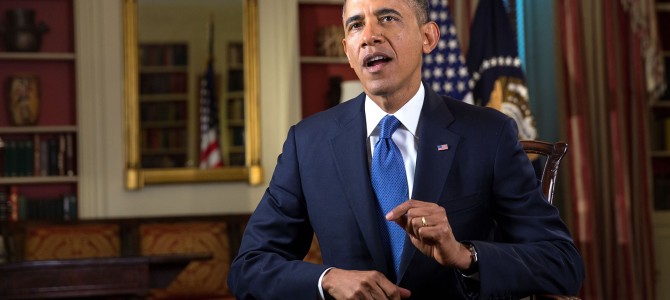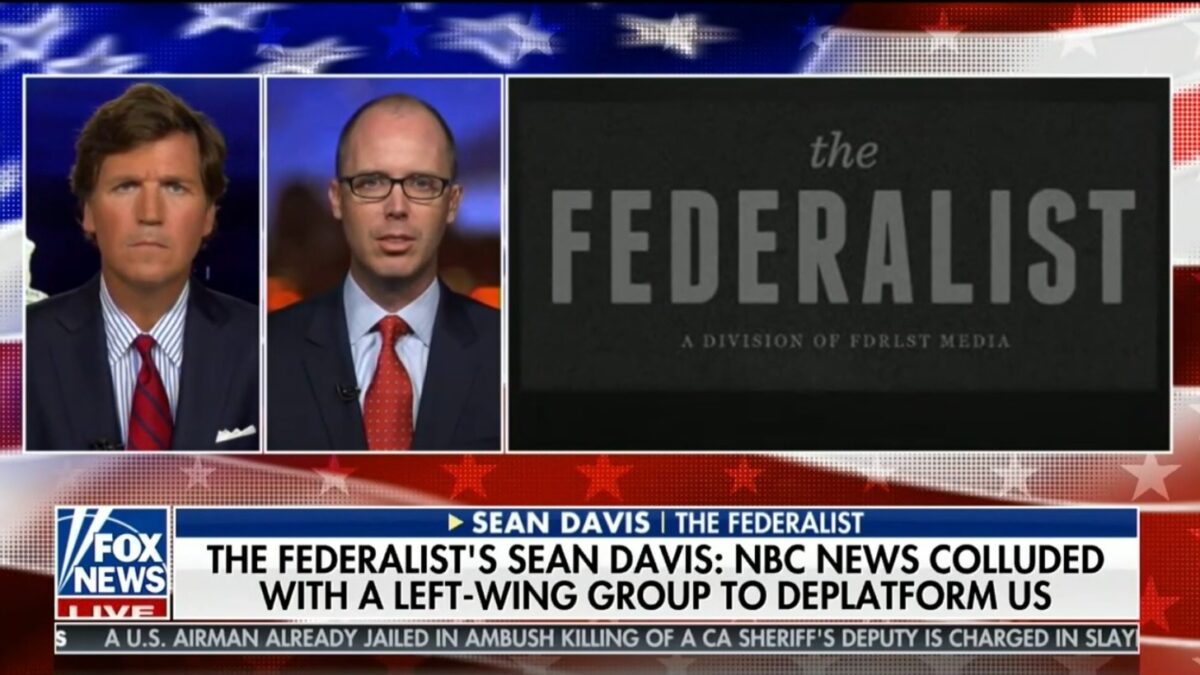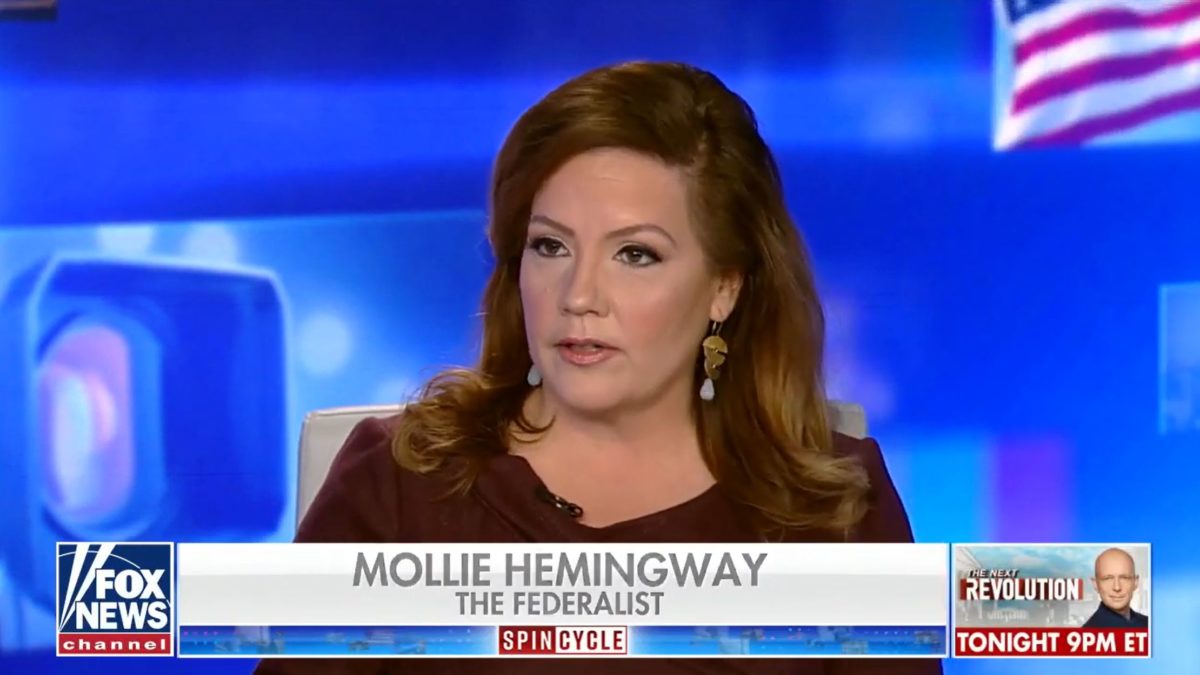
If the president’s State of the Union Address is to be our guide, we can expect his “pen” to be very busy in the months ahead.
Yet as many (including a number of concerned Congressmen) have noted, little in the Constitution or presidential precedent supports the massive expansion of executive power that has already taken place on his watch–and which seems likely to accelerate in what remains of his presidency.
But implicit in the president’s stated justification for acting alone–the intransigence of a hyper-partisan Congress–is a more subtle critique of his presidency: the evidence of systemic political and administrative incompetence. While incompetence seems like a less serious problem than constitutional malfeasance, the two are intimately and dangerously connected in this increasingly-lame duck presidency.
President Obama made his first mark on the national political scene delivering the Keynote Address at the 2004 Democratic National Convention. His energetic performance and unifying message left many counting the days until he could speak at his own nominating convention.
It didn’t take long. Two years after winning a seat in the U.S. Senate, he was a presidential candidate, stirring up audiences with calls to “hope and change”–serious change, as he promised in the speech he gave upon clinching the 2008 Democratic presidential nomination:
If we are willing to work for it, and fight for it, and believe in it, then I am absolutely certain that, generations from now, we will be able to look back and tell our children that this was the moment when we began to provide care for the sick and good jobs to the jobless; this was the moment when the rise of the oceans began to slow and our planet began to heal; this was the moment when we ended a war, and secured our nation, and restored our image as the last, best hope on Earth.
That’s not quite how things have played out. Hence reporter Jake Tapper’s recent line of questioning in interviewing the president: did he promise too much? Has he since “recalibrated” his “ambitions”?
On the contrary, said the president. Like Michael Scott enumerating his weaknesses (“I work too hard, I care too much …”), the first problem was no problem at all. In fact, he said, “we got a lot of that stuff done.” The second problem, of course, is other people–namely, House Republicans.
Yet for his first two years, the president had a Congress willing and able to enact almost all the big pieces of his agenda. Then, after 2010, he didn’t. Everyone knows why: the president who could sell himself like few politicians of his era couldn’t sell Obamacare. He could ram it through Congress by co-opting “stakeholders” and using every parliamentary trick in the book, but the speechmaster who made partisans swoon in 2008 and 2012 could do nothing to save the sixty-three House and six Senate Democrats who paid the ultimate political price for their Obamacare votes.
Over and over again, the president has failed to move the American political needle with a “major speech” on this or that important policy question. He can hector, but it’s hard to persuade people of your arguments when you never debate a real opponent. Republicans are always “anti-government” disciples of “trickle down” economics who believe only in “rugged individualism.” They never have an agenda, except to say “no” to his, and thereby protect the profits of Wall Street, Big Oil, and greedy insurance companies. His “sensible” proposals are always attractively posed between two straw men: a government-has-all-the-
But what of the real law behind the curtain? When we’re told, for example, that his stimulus package will bring unemployment down to 6%—and it doesn’t; that we can keep our health care plan and our doctor—and we can’t? When the fantasies of presidential rhetoric meet the realities of our daily lives, there is no talking us out of the conclusion that the president hasn’t delivered.
Multiplying administrative failures reinforce our skepticism: shovel-ready jobs that turn out not to be shovel-ready; “investment” after “investment” in failed and failing companies; an Obamacare website that still flunks basic security and privacy tests; a list of scandals (IRS, Benghazi, Fast-and-Furious) where the only alternative to evil intent is fundamental incompetence.
And so, “the pen.” Combine an overly-ambitious political agenda, an inability to convince others to support much of it, and serial failures to administer responsibly the part they do support, and you have the perfect recipe for executive overreach–whether to try to do what you can’t do otherwise, or to clean up the messes you’ve already made.
Having now done our best to apply the lessons of more than one-third of the Federalist essays to contemporary political events, there is a reason–hopefully better than personal dislike, partisan antipathy, or a mistaken love for political traditions that have passed us by–that, over and over again, we compare, unfavorably, the science of politics practiced by the Obama Administration with that of the American founders: the ideas are different, and the consequences matter.
Federalist 29 is another perfect example of how the Founders offer an alternative to the supposed wisdom of our day. The federal government, the essay shows, does not help to secure a more perfect Union by taking a general jurisdiction over the affairs of men, but by confining itself to those tasks it is best suited to administer, given the nature of man and government.
In Federalist 29 Hamilton argues that Americans cannot wish away the dangers of domestic insurrection or foreign invasion. Human beings have different interests. Those interests sometimes prompt them to take up arms. Those arms threaten the peace of civil society. It is necessary, therefore, that government act to secure society against these threats.
Since effective military force requires large measures of uniform preparation and coordinated action, the national government was most suited to this task. The project needed no artificial invention. It made perfect sense given the relative instability of the newly-formed states and the nature of international politics. The obvious truth of the matter provided both a winning political argument and a realizable political objective. Thus, among other military provisions, the Constitution empowered Congress “to provide for organizing, arming, and disciplining the Militia”–providing a necessary professionalization to the citizen army that would form the backbone of the American military for more than a century.
Every power the Constitution explicitly grants to the federal government displays the same marks: a necessary means to a self-evidently national and attainable end. Of how many of the assumed powers of today’s hyperactive state can we say the same?
Which brings us back to the present administration and the grandiose pretensions of its unchastened leader. Last week, the president announced before Congress, the Supreme Court, and the nation that this would be a “year of action.” While his use of his “pen” might have a modest policy impact in the areas he addressed, the precedent he sets will, unfortunately, have a much greater impact on the American regime moving forward.
Let’s, then, hope that this is a “year of action” too for the other branches of the government–not in conniving at executive usurpations for political advantage, but in guarding and restoring the boundaries of our constitutional system.
It would be better to stop this lame duck dynasty before it starts.
David Corbin is a Professor of Politics and Matthew Parks an Assistant Professor of Politics at The King’s College, New York City. They are co-authors of “Keeping Our Republic: Principles for a Political Reformation” (2011). You can follow their work on Twitter orFacebook.









